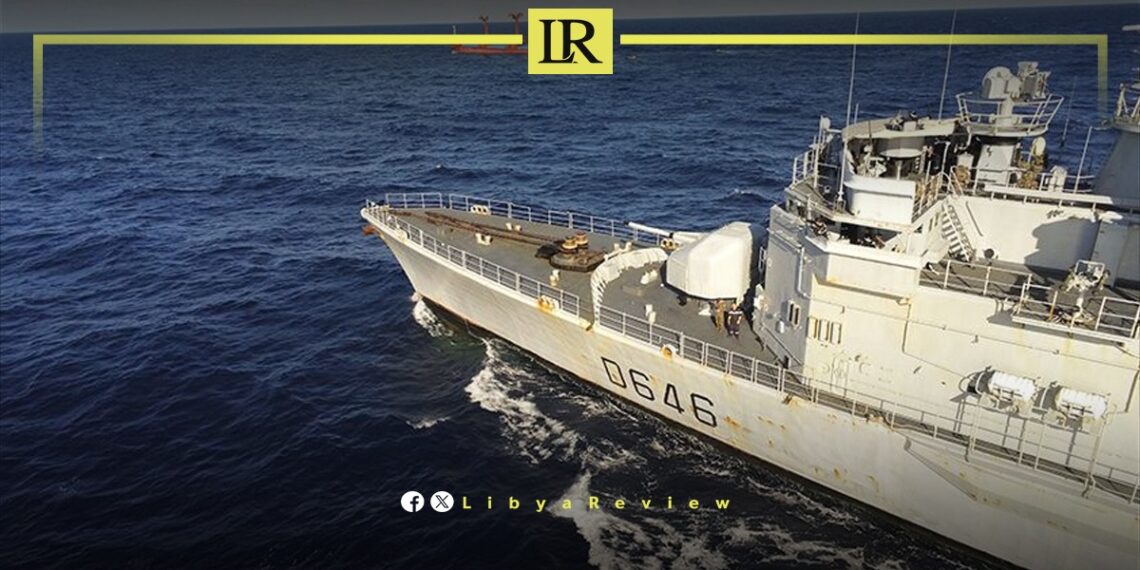On Thursday, Operation EUNAVFOR MED IRINI reported that it tracked 52 suspicious flights in January 2025 out of a total of 1,604 flights.
In a statement, the mission added that it also monitored 25 airports and landing strips and 16 ports and oil terminals as part of its ongoing operations within the European Union’s integrated approach to Libya.
Additionally, the operation has investigated 381 merchant vessels through radio inquiries, conducted 10 ship visits with the consent of their masters.
IRINI intensified its surveillance efforts as part of the European Union’s broader strategy to enforce the UN arms embargo on Libya.
Launched in March 2020, Irini operates in the central Mediterranean under the command of Admiral Valentino Rinaldi. The mission has confiscated shipments violating the embargo on three occasions, redirecting the vessels to EU ports, according to the Italian news agency Nova.
The UN Security Council extended the mandate for enforcing the arms embargo in May 2023 through Resolution 2733. The resolution authorizes member states to inspect vessels suspected of violating UN sanctions in international waters off Libya’s coast.
Nine council members, including the UK, US, France, and Japan, supported the renewal, reflecting the continued international commitment to stabilising Libya and curbing arms trafficking in the region.
In November, IRINI reported identifying 50 suspicious flights headed to Libya.
In addition to its aerial surveillance, Irini monitored 16,760 vessels in the Mediterranean during the same period. It conducted wireless investigations with 580 commercial ships and carried out 30 onboard inspections after securing the captains’ consent.
Libya has been in chaos since a NATO-backed uprising toppled longtime leader Muammar Gaddafi in 2011. The county has for years been split between rival administrations.
Libya’s economy, heavily reliant on oil, has suffered due to the ongoing conflict. The instability has led to fluctuations in oil production and prices, impacting the global oil market and Libya’s economy.
The conflict has led to a significant humanitarian crisis in Libya, with thousands of people killed, and many more displaced. Migrants and refugees using Libya as a transit point to Europe have also faced dire conditions.
The planned elections for December 2021 were delayed due to disagreements over election laws and the eligibility of certain candidates. This delay has raised concerns about the feasibility of a peaceful political transition.
Despite the ceasefire, security remains a significant concern with sporadic fighting and the presence of mercenaries and foreign fighters. The unification of the military and the removal of foreign forces are crucial challenges.


